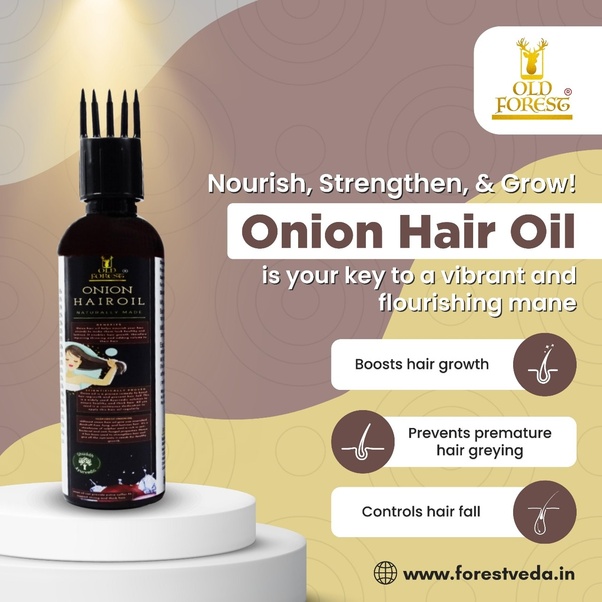Is onion oil good for grey hair?
Indianvaidyas 02 Feb 2024

Yes, onion oil can be beneficial for grey hair. Grey hair occurs when the production of melanin, the pigment responsible for hair color, decreases or stops altogether. Onion oil contains several compounds that may help promote healthy hair growth and potentially reverse greying.
One key component in onion oil is sulfur. Sulfur is essential for the production of collagen and keratin, which are both crucial for maintaining strong and vibrant hair. By providing your scalp with an adequate amount of sulfur through onion oil application, you can potentially stimulate the regrowth of pigmented hairs. By regularly massaging onion oil into your scalp, you can increase blood circulation to the follicles and ensure essential nutrients reach them more effectively.
Moreover, onion oil is rich in antioxidants such as flavonoids and quercetin which protect against oxidative stress caused by free radicals. The abundance of these antioxidants helps neutralize harmful molecules that contribute to premature greying.
Onion oil also possesses anti-inflammatory properties that soothe an irritated or inflamed scalp – a common condition associated with premature greying. A calm scalp environment promotes healthier hair growth and prevents further damage.
To make use of onion oil's benefits for grey hair, it is recommended to massage it gently onto your scalp before bedtime at least twice a week. Leave it on overnight or wash it off after an hour if preferred. Consistency is key; regular application over time will yield noticeable results.
Containing pure onion extracts along with the goodness of almond, amla, castor oil and bhringaraj oil, Old Forest Natural Onion Hair Oil is an effective product that helps combat hair fall and premature greying of hair. This onion hair oil in combination with redensyl, reduces hair fall, prevents premature greying while making the strands nourished.
However, keep in mind that individual responses may vary depending on multiple factors like genetics and overall health conditions. It's always best to consult with a dermatologist or trichologist before incorporating any new treatments into your routine.